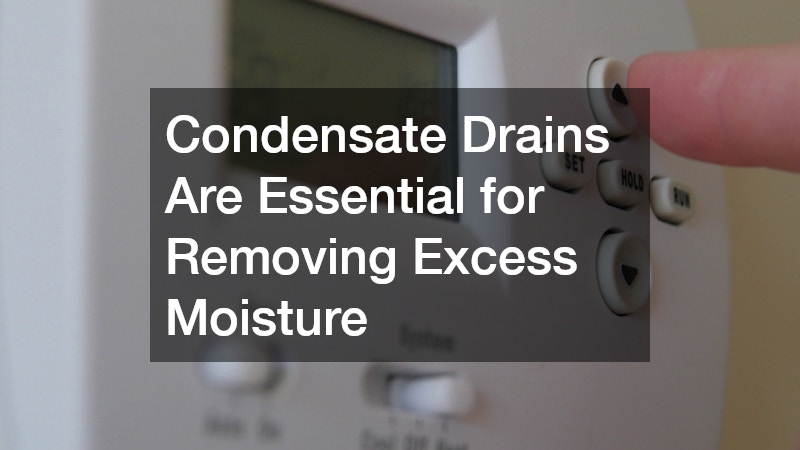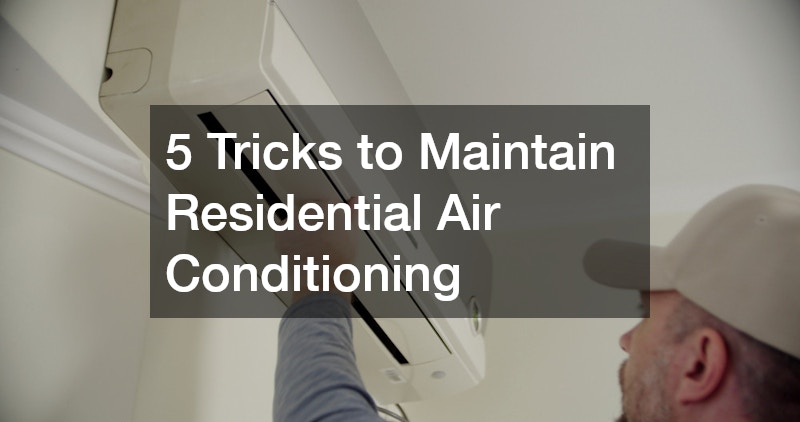Maintaining a comfortable and energy-efficient home requires regular attention to your air conditioning system. Residential air conditioning not only keeps your living spaces cool during hot months but also contributes to healthier indoor air quality and lower energy bills. Understanding how to care for these systems ensures they perform efficiently and last longer.
Proper maintenance goes beyond simply turning the unit on and off. It involves routine checks, cleaning and minor adjustments that can prevent costly repairs down the line. By taking a proactive approach, homeowners can enjoy a reliable cooling system, extend the lifespan of their equipment and improve overall comfort throughout the year.
Clean and Replace Air Filters Regularly
Air filters play a crucial role in the performance of any residential air conditioning system. They trap dust, pollen and other airborne particles, helping to keep the air inside your home clean and preventing debris from accumulating in the system. Regular cleaning or replacement of filters improves airflow, reduces energy consumption and ensures your unit runs smoothly.
For most residential systems, it is recommended to inspect filters at least once a month and replace them every 1 to 3 months, depending on usage and filter type. Homes with pets or allergy sufferers may require more frequent attention. Using high-quality filters that are compatible with your system can significantly improve efficiency and reduce strain on the air conditioner, keeping your home cooler for longer periods.
Inspect and Clear Condensate Drains
Condensate drains are essential for removing excess moisture produced during cooling. When these drains become clogged, water can back up, causing damage to walls, floors or even the air conditioning system itself. Ensuring that condensate drains are clear prevents leaks and reduces the risk of mould growth.
You should visually inspect the drain line periodically and flush it with a mixture of water and mild detergent or a vinegar solution to remove blockages. Some systems have a drain pan that should also be cleaned regularly to prevent overflow. Simple preventive care like this can protect both your home and your unit from unnecessary damage.
Check and Maintain Thermostat Settings
The thermostat controls the operation of your air conditioning system and plays a pivotal role in energy efficiency. Incorrect or inconsistent settings can lead to overuse of the system, higher electricity bills and uneven cooling in your home. Understanding how to optimise thermostat settings ensures the unit runs only when needed and maintains a comfortable environment.
For maximum efficiency, set the thermostat to a consistent temperature when at home and use programmable or smart thermostats to adjust settings automatically during the day. Regularly calibrating the thermostat ensures it accurately reflects indoor temperatures. Homeowners who monitor and adjust settings thoughtfully can enjoy both comfort and cost savings without putting extra strain on their system.
Keep Coils and Vents Free of Dust
Evaporator and condenser coils absorb and release heat, which makes them essential for effective cooling. Dust and debris on these components reduce airflow and prevent efficient heat exchange, forcing the system to work harder and consume more energy. Regular cleaning ensures optimal performance and helps maintain air quality inside the home.
Vents should also be checked and vacuumed to remove dust build-up, and furniture or curtains should not obstruct airflow. For coils, gently brushing or using a soft vacuum attachment can remove surface debris, while professional cleaning may be necessary for deeper layers. A clean system not only cools better but also extends the life of key components.
Schedule Professional Maintenance Annually
While homeowners can handle many maintenance tasks, annual professional servicing is vital for long-term system health. A qualified technician can inspect electrical connections, refrigerant levels and mechanical parts to identify potential issues before they become major problems. Regular professional check-ups keep your system running efficiently and prevent unexpected breakdowns.
During these visits, technicians can clean components that are difficult to reach, check for leaks and ensure all safety mechanisms are functioning correctly. Documenting service history also helps maintain warranties and can improve resale value if you decide to sell your home. By combining DIY care with expert maintenance, homeowners can enjoy reliable performance and peace of mind year after year.
Proper maintenance of residential air conditioning systems is essential for comfort, efficiency and longevity. Simple practices like cleaning filters, clearing drains, checking thermostats, keeping coils and vents free of dust, and scheduling professional inspections ensure your system operates at its best.
By following these strategies, homeowners not only reduce the risk of costly repairs but also create a healthier, more comfortable living environment. Investing a little time and attention into regular care can make a significant difference in energy bills, indoor air quality and overall system reliability, making summer months far more enjoyable.



